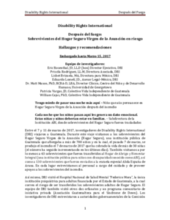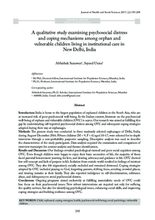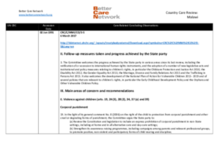Displaying 321 - 330 of 713
In this episode of the Think Orphan podcast, Philip Darke speaks with Dr. Delia Pop about the impact of institutional care, deinstitutionalisation (DI), cross-cultural application, and how faith communities, missionaries, volunteers, and donors can work toward better outcomes for children outside family care.
Edited by Tuhinul Islam and Leon Fulcher, Residential Child and Youth Care in a Developing World: European Perspectives is the second volume in a series of four, bringing together contributions from local practitioners, educators and researchers throughout Europe on their countries' residential child and youth care traditions, policies and practices, as well as knowledge about children's needs, rights and personal upbringing there.
This study examines signs of reactive attachment disorder and disinhibited social engagement disorder at age 12 years in 111 children who were abandoned at or shortly after birth and subsequently randomized to care as usual or to high-quality foster care, as well as in 50 comparison children who were never institutionalized.
This study aimed to assess the prevalence and risk factors of depression, anxiety, stress and low self-esteem among institutional Malaysian adolescents.
Entre el 7 y 11 de marzo de 2017, investigadores de Disability Rights International (DRI) viajaron a Guatemala para entrevistar los sobrevivientes de vivienda institucional. Este documento presente la información recopilada y las recomendaciones de DRI a Guatemala.
DRI’s main finding is that survivors of the fire at Hogar Seguro Virgen de la Asunción face immediate danger – including detention in other institutions where they face continued segregation and abuse.
This study investigated the psychosocial distress and coping mechanisms of institutionalized children living in New Delhi, India.
Hace un llamado urgente para acabar con la institucionalización de niños y niñas en la región
This country care review includes the care-related Concluding Observations adopted by the Committee on the Rights of the Child.
This study emphasises different facets of peer exploitation awareness and experience identified in closed-type institutions, including a couple of abusive behaviours that have not been previously identified in long-term residential centres.





